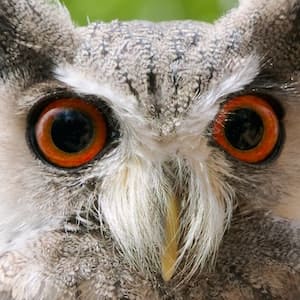night owl: Idiom Meaning and Origin
What does ‘night owl’ mean?
The idiom "night owl" refers to someone who prefers to stay awake and active during the night rather than during the day.

Idiom Explorer
The idiom "thief in the night" means someone who acts stealthily or unexpectedly, often taking advantage of a situation without being noticed or detected.
The idiom "on the wagon" means to abstain from drinking alcohol or to be not drinking alcohol after a period of heavy drinking.
The idiom "on the run" means being in a state of constant movement or being pursued by someone or something. It can also refer to living a fast-paced and hectic life without any moment of rest or relaxation.
The idiom "on the prowl" means to be actively hunting or searching for something, often with a sense of stealth or intention. It is commonly used to describe someone who is looking for a romantic or sexual partner.
The idiom "on the go" means to be busy or occupied with various activities or tasks, without much time for rest or relaxation.
The idiom "on the clock" means being paid for the time spent working. It implies that a person is actively engaged in their job responsibilities and under the time constraint of their employer.
The idiom "on one's watch" means being responsible for something or someone during one's assigned time or period of duty.
The idiom "on and off" means to do something intermittently or inconsistently, with periods of activity followed by periods of inactivity or cessation.
The idiom "oh dark hundred" is used informally to refer to a very early hour in the morning, typically before sunrise. It conveys a sense of darkness and obscurity, emphasizing the early and often inconvenient nature of the time being referred to.
Deciphering Nocturnal Habits
One related idiom to "night owl" is "night person." This term is essentially synonymous with "night owl" and describes an individual who is most active and alert during the nighttime hours. Just like a night owl, a night person prefers to stay awake and engage in activities during the night, rather than conforming to the more typical diurnal routine. The usage of "night person" reinforces the idea that some individuals naturally thrive and feel more productive during the nighttime.
Another related idiom is "day lark." This idiom contrasts with "night owl" and refers to a person who is most active and productive during the daytime. While night owls prefer the night, day larks are energetic and alert during the day. This idiom acknowledges that individuals have varying preferences and peak activity periods throughout the day.
Lastly, we have the idiom "creature of the night." This phrase is often used to describe someone who has a strong affinity for the nighttime and its associated activities. Similar to a night owl, a creature of the night finds comfort and enjoyment in the darkness and tranquility that the night offers. This idiom conveys a sense of appreciation for the unique experiences and opportunities that can be found during the nighttime.
The idiom "night owl" is widely recognized and understood by English speakers. It refers to a person who prefers to stay awake and be active during the nighttime hours, deviating from the typical diurnal routine. Additionally, related idioms such as "night person," "day lark," and "creature of the night" further explore the nuances of individuals' preferences and activity patterns throughout the day. The usage of these idioms encourages us to reflect on our own relationship with time and the ways in which we choose to structure our lives.
Example usage
Examples of how the idiom *night owl* can be used in a sentence:
- 1. John has always been a night owl, staying up late and sleeping in until noon.
- 2. My sister is a true night owl, she is most active and alert during the late hours of the night.
- 3. Although I have to wake up early for work, I can't help but be a night owl and stay awake until the early hours of the morning.
The idiom *night owl* is used to describe a person who prefers to stay awake and be active during the late hours of the night, rather than during the day. It implies that the person has a preference for nighttime activities and may have difficulty adjusting to a typical diurnal (daytime) sleep schedule. Being a night owl is often associated with creativity, productivity, and a tendency to be more energetic and focused during the nighttime hours.
More "Animals" idioms



